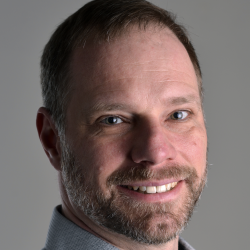I arrived in Cambridge, fresh off the ferry, as a starry-eyed and bushy-tailed undergraduate from Hamburg in Germany in 1991. It was my first time living in the UK, and so many things – from Anglican church music to chip butties – seemed strange and exotic. The Tripos at the time, with its deep commitment to traditional techniques and a (shall we say) firmly delineated core repertoire appeared focused, rigorous, and challenging, which appealed to me. My main regret was that there was relatively little of what we would now call interdisciplinary work; I tried to sit in on classes offered by the Philosophy and History faculties to the extent possible. But I soon realized that I had to learn most from friends and fellow students, which involved many evenings spent bashing out whole scores – poorly, and probably drunkenly – on the piano.
Like most music students at Cambridge, I spent a lot of time performing. I was a trombonist and took my instrument fairly seriously, with ensembles and orchestra rehearsals most days of the week. At the same time, I was fairly certain that I didn’t want to spend my life sitting in an orchestra pit, counting rests for most of the evening. I was quite interested in the more academic side of the Music Tripos fairly early on, and when it came to postgraduate studies, I decided to stay on at Cambridge for an MPhil, then a PhD, and finally a three-year research fellowship at Emmanuel. After a total of 10 years in Cambridge, I started getting antsy.
Going back to Germany was unlikely: at the time, before the Bologna Process, Germany was reluctant to recognize foreign degrees, and I had become quite interested in the kinds of questions that were being raised in the US. I tested the waters in a one-year postdoc in 2000/01 (during the Bush/Gore election – interesting times!) at the Humanities Forum at UPenn in Philadelphia, and was genuinely impressed with the ease with which scholars talked across disciplines. I moved on to a few other positions along the American East coast and joined the faculty at Harvard in 2003 as an assistant professor.
One curiosity about the American system, which places a primary on professionalization and disciplinary decorum, is that the differences between music history, ethnomusicology and music theory run quite deep, and I had to decide whose flag I was going to fly. My dissertation work had been on the 19th-century music theorist Hugo Riemann. So I became a music theorist, by default, as it were. As it turned out, being a music theorist was easier than I had expected: the kinds of skills that were central to what theorists did at the time were exactly the techniques that were our bread-and-butter parts of the Tripos.
Alexander Rehding is Fanny Peabody Professor of Music at Harvard University. Anchored in German and European cultural and intellectual history of the 18th-21st centuries, Rehding's research and teaching interests include such topics as music and identity, cultural transfer, historiography, ecocriticism, sound studies, media theory, and digital humanities. His contributions have been recognized with such awards as a Guggenheim Fellowship and the Dent Medal of the International Musicological Society and the Royal Musical Association. His interest in integrating digital technology into teaching and research led him to found Harvard’s Sound Lab in 2012. His forthcoming monograph examines the Voyager Golden Record—a collection of world music—that NASA shot into outer space in 1977, and he is currently working on two monographs, one on the role of instruments in the shaping of musical thought, and one on music and the Anthropocene.




